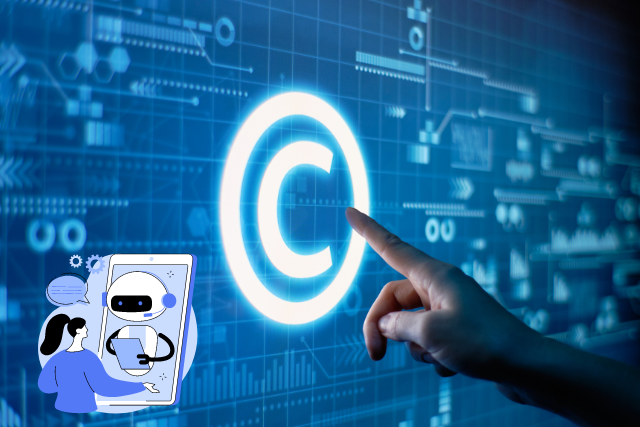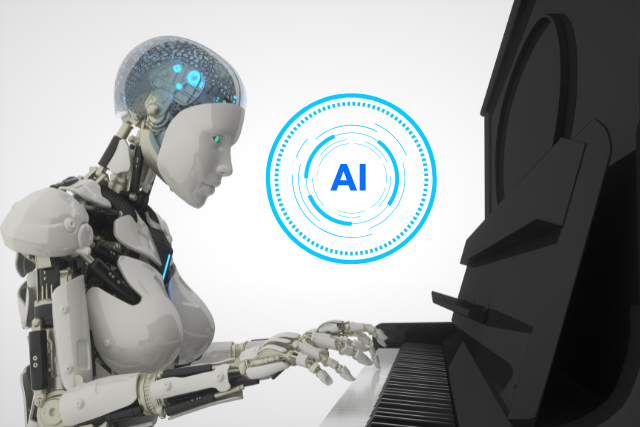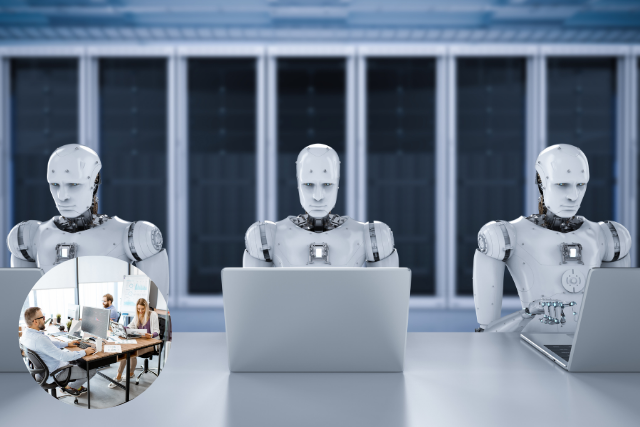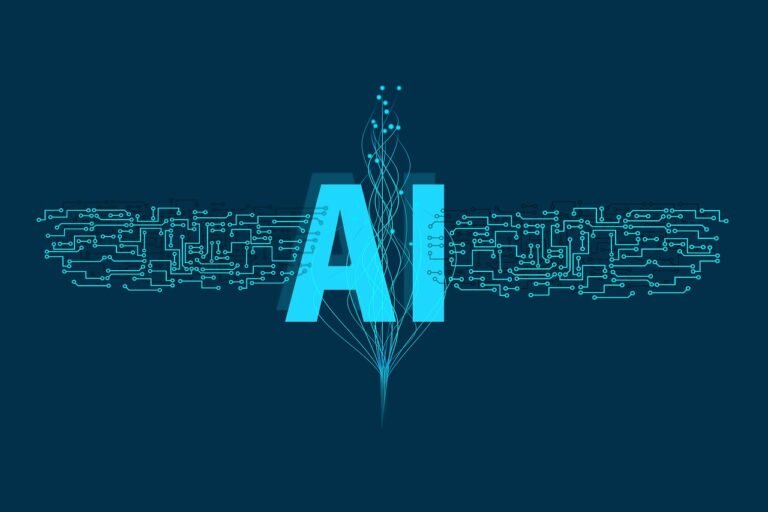Generative AI, a powerful technology capable of producing original content, reshapes the entertainment, marketing, and healthcare industries.
However, alongside these advancements comes a significant question: Who owns the copyright to AI-generated content?
This article examines the complex interplay between AI and copyright law, examining the current landscape, key challenges, and potential future directions.
Understanding Generative AI and Its Capabilities
What is Generative AI?
Generative AI refers to artificial intelligence systems designed to create new content. These systems, powered by machine learning algorithms, are trained on vast datasets.
They can generate content that mimics the input data’s style, tone, and quality. Examples of generative AI include:
- Language models like GPT-4 can write coherent and contextually relevant text.
- Image generators like DALL-E can produce detailed and imaginative artwork from textual descriptions.
- Music composers like MuseNet can create intricate musical compositions.
- Video generators like RunwayML can craft engaging video content.
The Rise of AI-Generated Content
The capabilities of generative AI have led to its adoption in various fields, including marketing, entertainment, healthcare, and finance. For instance, businesses use AI to create personalized marketing campaigns.
Artists leverage AI for innovative creations, and researchers employ AI to simulate complex scenarios. This widespread use raises critical questions about ownership and intellectual property rights.
The Legal Landscape of AI-Generated Content
Copyright Basics
Copyright law grants creators exclusive rights to their original works, allowing them to control their creations’ use, distribution, and reproduction.
Traditionally, copyright protection applies to works created by humans. However, the advent of AI-generated content challenges this human-centric framework.
Current Legal Standpoints
United States
In the United States, the Copyright Office has taken a clear stance that copyright protection only extends to works created by humans.
According to the Copyright Office, works produced solely by machines or mechanical processes, without human intervention, are not eligible for copyright protection
This position aligns with the “human authorship” requirement under U.S. copyright law.
European Union
The European Union has a more nuanced approach. While the EU recognizes the importance of AI in creative processes, current legislation does not explicitly address AI-generated content.
The European Parliament has called for a balanced approach that fosters innovation while protecting intellectual property rights. Ongoing discussions aim to establish a legal framework considering the unique nature of AI-generated works.
Other Jurisdictions
Globally, the legal status of AI-generated content varies. Some countries, like the United Kingdom, grant copyright protection to works created by “computer-generated” processes if there is no human author. However, the extent and nature of such protections differ, leading to a fragmented international landscape.
Key Challenges and Considerations
Defining Authorship
One of the primary challenges in granting copyright to AI-generated content is defining authorship. Traditional copyright law assumes a human creator, but with AI, the lines between human and machine authorship blur. Determining who (or what) qualifies as an author is a fundamental question with significant implications.
Ownership and Control
Even if AI-generated works are deemed copyrightable, questions about ownership arise. Should the owner of the AI system, the programmer, or the user who inputs the data be granted copyright? Establishing clear ownership rights is essential for protecting interests and incentivizing creativity.
Moral Rights
Moral rights, which protect authors’ personal and reputational interests, add another layer of complexity. AI systems lack personal interests and reputations, making applying traditional moral rights concepts to AI-generated content challenging.
Potential Solutions and Future Directions
Collaborative Authorship Models
One potential solution is recognising collaborative authorship where human and AI contributions are acknowledged. This approach would require revising copyright laws to accommodate joint authorship, reflecting the reality of human-AI collaboration.
AI-Specific Legislation
Another approach is to develop AI-specific legislation that addresses the unique nature of AI-generated content. Such laws could provide a clear framework for copyright protection, ownership, and moral rights, tailored to the capabilities and limitations of AI.
Licensing and Agreements
Licensing agreements between AI developers, users, and stakeholders can provide a practical solution. These agreements can outline the terms of use, ownership, and distribution of AI-generated content, offering a contractual framework to manage rights and responsibilities.
International Cooperation
Harmonizing international copyright laws to address AI-generated content is crucial. Global cooperation can ensure consistent protection and enforcement of rights, facilitating cross-border use and distribution of AI-generated works.
Conclusion
The intersection of AI and copyright law presents a complex and evolving challenge. As generative AI advances, the need for straightforward and adaptable legal frameworks becomes increasingly urgent.
Addressing authorship, ownership, and moral rights requires innovative thinking and international collaboration.
By proactively engaging with these issues, we can harness the power of generative AI to transform how we create and interact with content, leading to a future filled with endless possibilities.
Frequently Asked Questions
1. Who owns the copyright to AI-generated content?
Currently, most jurisdictions do not recognize copyright for purely AI-generated content, requiring human authorship for protection. However, this is an evolving legal area.
2. Can AI-generated content be protected under current copyright laws?
In many regions like the United States, copyright protection is limited to human-created works. Some countries may offer limited protections for computer-generated content.
3. What are the ethical implications of AI-generated content?
Ethical concerns include potential biases in AI models, the displacement of human jobs, and issues of authorship and ownership of creative works.
4. How can businesses protect their AI-generated content?
Businesses can use licensing agreements to manage the use, ownership, and distribution of AI-generated content, ensuring their rights and interests are protected.
5. Are there any proposed changes to copyright laws regarding AI?
Yes, several jurisdictions are considering changes to copyright laws to address the unique challenges AI-generated content poses. These changes aim to balance innovation with intellectual property protection.
6. How does AI impact the creative industry?
AI enhances efficiency and creativity in the creative industry, enabling the production of innovative works. However, it also raises questions about the future role of human creators and the ethical use of AI in art and design.






